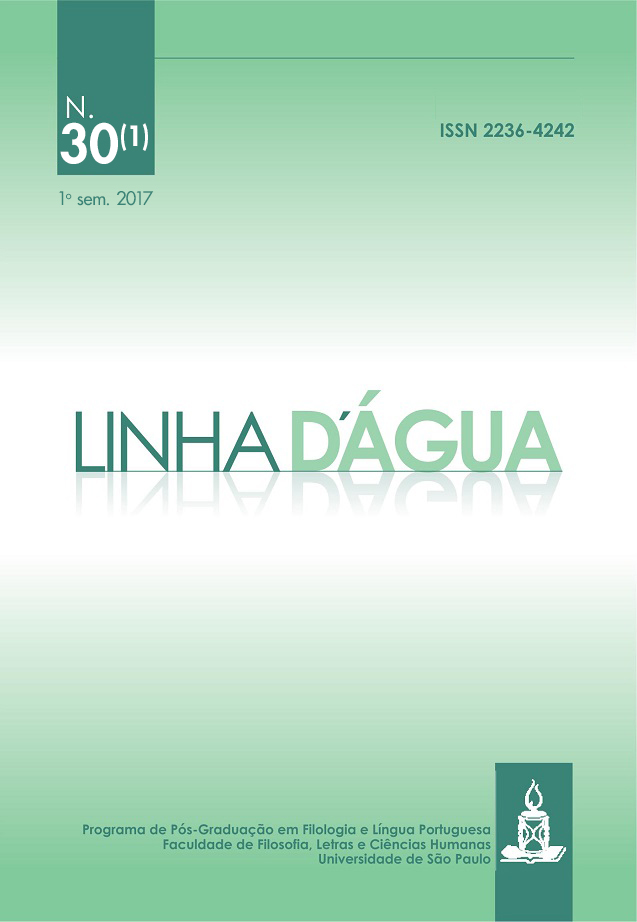Poetic Discourse and the Power Relations and Relations With the Power in the Poetry by Cacaso
DOI:
https://doi.org/10.11606/issn.2236-4242.v30i1p145-158Keywords:
Cacaso, Brazilian Poetry, Stylistic.Abstract
Literature, as every artistic expression, establishes relations with the historical context. Depending on the author, the socio-political circumstances and even the aesthetic tendencies, there will be more pronounced marks in the literary discourse. Medeiros (http://www. portalconscienciapolitica.com.br/ products /literatura-engajada/), referring to Sartre, states that “there are writers who choose to “engage” by means of their works and writings in which express, among other things, the clash between art and political realism.” This is what can be observed Cacaso’s poems. Establishing a clear dialogue with other authors and, using irony as a resource, Cacaso builds a imaginative and very critical poetry against the military dictatorship to which Brazil was subjected from 1964 to the beginning of the 1980’s. The engagement implies in a writer´s reflection upon the relations that restrains / impedes/ hampers literature with politics and the society. Also, according to Medeiros, there is a commitment between the author and the society: “ Without being a pamphleteer, this is Cacaso’s poetic legacy to the Brazilian Literature: a reflexive poetry, based on everyday life, marked by touches of humor. The present paper aims to analyze the relations between power and Cacaso’s poetic construction, in poems from the “Lero-Lero” collection having Bakhtin, Brait, Martins and Van Dijk, among others, as theoretical basis.
Downloads
Downloads
Published
Issue
Section
License
The Editorial Board authorizes free access to and distribution of published contentes, provided that the source is cited, that is, granding credit to the authors and Linha D'Água and preserving the full text. The author is allowed to place the final version (postprint / editor’s PDF) in an institutional/thematic repositor or personal page (site, blog), immediately after publication, provided that it is available for open access and comes without any embargo period. Full reference should be made to the first publication in Linha D'Água. Access to the paper should at least be aligned with the access the journal offers.
As a legal entity, the University of São Paulo at Ribeirão Preto School of Philosophy, Sciences and Languages owns and holds the copyright deriving from the publication. To use the papers, Paidéia adopts the Creative Commons Licence, CC BY-NC non-commercial attribution. This licence permits access, download, print, share, reuse and distribution of papers, provided that this is for non-commercial use and that the source is cited, giving due authorship credit to Linha D'Água. In these cases, neither authors nor editors need any permission.
Partial reproduction of other publications
Citations of more than 500 words, reproductions of one or more figures, tables or other illustrions should be accompanied by written permission from the copyright owner of the original work with a view to reproduction in Linha D'Água. This permission has to be addressed to the author of the submitted manuscript. Secondarily obtained rights will not be transferred under any circumstance.










